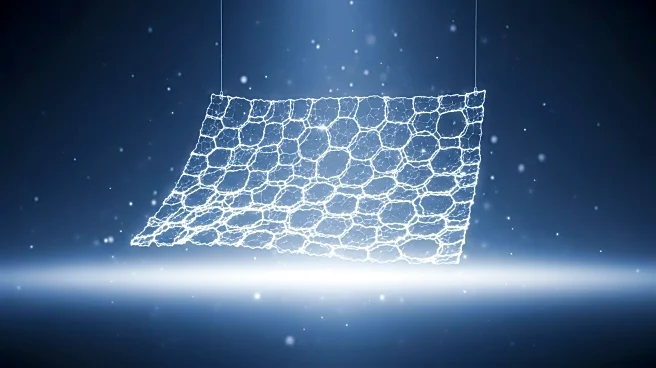What is the story about?
What's Happening?
Researchers at the Indian Institute of Science in Bengaluru, in collaboration with Japanese partners, have discovered that graphene can violate the Wiedemann–Franz law, a principle that links electrical and thermal conductivity in metals. By cooling ultra-clean graphene samples to very low temperatures, they observed that at the Dirac point, graphene's electrical conductivity increases while its thermal conductivity decreases, defying the expected ratio. This behavior suggests that electrons in graphene move collectively like a liquid, known as a Dirac fluid, rather than as independent particles.
Why It's Important?
This discovery could have significant implications for technology, particularly in heat management for advanced devices. Materials that allow electricity to flow easily without conducting heat could lead to the development of more efficient electronics, improved quantum sensors, and stable superconducting systems. The findings challenge the traditional understanding of charge and heat transport, suggesting that graphene's unique properties could be harnessed for innovative technological applications.
Beyond the Headlines
The phenomenon occurs under specific conditions, requiring nearly flawless graphene at extremely low temperatures. This suggests that while the discovery is groundbreaking, practical applications may be limited until these conditions can be replicated more broadly. The research highlights the potential of graphene as a 'wonder material' capable of bending the laws of physics, opening new avenues for scientific exploration and technological advancement.


















